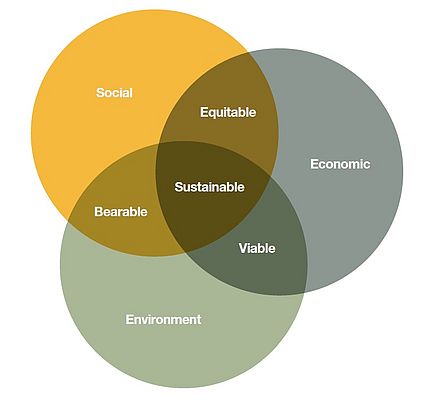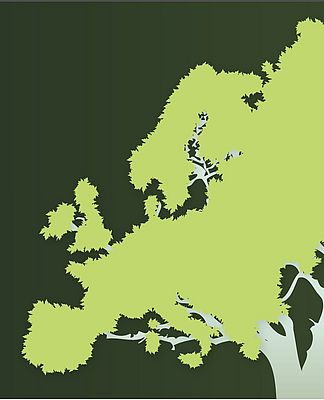The Research & Innovation Public-Private Partnership (PPP) proposal, Sustainable Process Industry through Resource and Energy Efficiency (SPIRE), has the objective to develop the enabling technologies and solutions along the value chain that are required to reach long term sustainability for Europe in terms of global competitiveness, ecology and employment.
The SPIRE PPP will be instrumental in addressing the Grand Societal Challenges defined within EU 2020 Agenda through the broad correlation it has across various flagships initiatives (Innovation Union, Resource Efficient Europe, Industrial Policy for the Globalisation Era). In the latter, the Commission specifically addresses the need for public-private collaborations to ensure uptake of resource and energy efficiency innovations – “in the context of the discussion on future research Public-Private Partnerships, consider an Energy-intensive Industries Low Carbon Implementation initiative, bringing together the relevant technology platforms with EU and Member States, to ensure the appropriate R&D, financing and deployment strategies for low-carbon production”2.
The process industry is uniquely positioned to drive this initiative as it transforms raw material feedstocks to intermediate and end-user products and thus sits at the core of every value chain. There it fulfils the enabling role for improving competitiveness whilst drastically reducing resource and energy inefficiency and the environmental footprint of our industrial activities. A substantial resource efficiency improvement has been achieved in industry over the past years3 and technological breakthroughs are needed to pass beyond current day limits. The process industry has been at the foundation of the European Economy, creating global leadership as it initiated the first and second Industrial Revolutions. It is still in many areas a global leader, however it is losing its position due to ever increasing global competition with associated loss in employment, intellectual capacity and economic impact.
This initiative is essential to rejuvenate the European industrial base and make the paradigm shift of decoupling economic growth from resource impact. It is uniquely positioned to support the ongoing PPP initiatives (Factory of the Future, Green Cars and Energy-efficient Buildings), through an essential complementary Value Chain coverage to ensure the resource effective transition in key enabling technologies that “feed” these PPPs’ objectives.
The Resource and Energy Efficiency Partnership (REP) is the driver behind the SPIRE PPP proposal, building upon the collective expertise of more than 10 major industry sectors - all with strong connections to process manufacturing. The proposal can count on the engagement of REP in the further definition of a PPP work package structure, multi-year roadmap and consortium structure. It will, for the first time, bring together all actors along the value chain - from different types of feedstock through industrial transformation into intermediate and end-products. The proposal pursues a comprehensive innovation concept, which whilst including technological progress, also encompasses novel business models, design, branding and services. It includes public sector and social innovation concepts as well as commercial innovation.
The SPIRE PPP will involve large corporate, top-academia and high-tech SMEs to develop innovative technologies and breakthrough materials of the future that will modernise the European industrial landscape in becoming a competitive process partnership, as a global solution provider towards a clear set of breakthrough ambitions related to crucial resource efficiency targets. These solutions will then become available for a wider range of EU SMEs or currently less performing sectors and entrepreneurs making the EU process industry as a whole the most competitive at global level. Based on thorough life cycle analysis and aggregated across all sectors of the process industry we envisage the following ambitions.
1. A reduction in fossil energy intensity of up to 30% from current levels by 2030 through a combination of, for example, cogeneration-heat-power, process intensification, introduction of novel energy-saving processes, and progressive introduction of alternative (renewable) energy sources within the process cycle.
2. By 2030, up to 20% reduction in non-renewable, primary raw material intensity versus current levels, by increasing chemical and physical transformation yields and/or using secondary (through optimised recycling processes) and renewable raw materials. This may require more sophisticated and more processed raw materials from the raw materials industries. A full life cycle cost analysis is required to consider all effects of using secondary and renewable feedstocks (e.g. water usage) and to prove the sustainability advantage.
Both these aspirations will make a significant contribution to the political and societal objectives of drastic efficiency improvement in CO2-equivalent footprints4.
The technology roadmap will be designed around two key priorities; energy efficiency and non-energy resource efficiency (e.g. materials, water, waste, etc.) for the process industry. For each of these priorities, three areas of development have been defined; leverage existing technology beyond current practice, new innovations in single sectors and across sectors. SPIRE PPP will also include an economic feasibility study and recommendations for market uptake.
The global requirements for drastically increased resource efficiency is seen by REP as an opportunity. It will be used to turn around a decreasing trend in European competitiveness of the process industry and position Europe as a global leader. The value chain approach and the active role of industry in definition of the PPP proposal ensures that there is commitment in execution of the PPP, and it will also facilitate an effective uptake of the results of the PPP in the market. Europe will merit from the PPP as in return industry will pursue exploitation of generated intellectual property and technology first in Europe. Also companies receiving public funding should preferentially involve EU lead customers and/or suppliers (preferentially SMEs). The public sector (EU and Member States) will have to play an essential role in design and implementation of support policies and regulations.
The foreseen breakthrough developments will stimulate entrepreneurship in Europe, create more jobs both in the process industries (more interesting and higher quality jobs), the research community (world class research) and high-tech SMEs (new eco-efficient process technologies) by creating new markets. At the same time, citizens’ quality of life will improve by building a greener, more efficient and better society for Europe.
SPIRE- sustainable process industry
European industrial competitiveness through resource and energy efficiency
- by Cefic - European Chemical Industry Council
- February 14, 2012
- 342 views



















